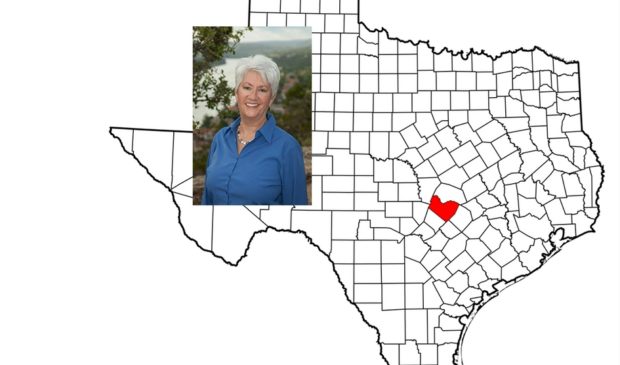Criminal justice, conservation and CAMPO keep Shea engaged
Tuesday, December 26, 2017 by
Caleb Pritchard 2017 was the year that Gov. Greg Abbott, in particular, opened fire on Travis County, hacking state grants for key criminal justice programs after Sheriff Sally Hernandez softened her office’s policy on dealing with federal immigration enforcers.
For Commissioner Brigid Shea, the governor’s “tantrum” presented a challenge that the Commissioners Court took head-on.
“We looked around and said, these programs are too important and we’re going to figure out a way to continue them,” she said. “And we did.”
By digging into its couch cushions and creating new efficiencies, the county was able to find ways to keep the lights on for services that help veterans, women and men caught up in the cycle of prostitution, and families affected by substance abuse and domestic violence.
“We have really planted the flag in saying, ‘We are going to have a more humane criminal justice system that tries to really get people out of the cycle of crime, mental health, addiction and poverty, instead of locking them up and sending the taxpayers the bill,’” Shea said.
The court initiated another innovative justice program at its final meeting of the year with the creation of a new four-hour diversion class for low-level marijuana offenders. Shea quipped just before its unanimous passage, “I think we can all put on our Santa hats and take people off the naughty list today.”
The court also made forward progress on affordable housing by amending its public improvement district policy to include specific considerations. While the language allows the opportunity for developers to pay a fee in lieu of constructing subsidized housing on-site, Shea touted it as a step forward. She also said she has been and will continue working with stakeholders, including the county constables, to revise eviction processes that can leave low-income residents in a downward spiral toward homelessness.
Shea said she’s pursuing that initiative, which largely falls outside of the court’s jurisdiction, primarily as an advocate.
“That’s my view on a lot of this,” she explained. “The county authority is narrow. But the public position to me is broad. And I feel like that’s an important tool for me to utilize.”
In 2018, the Precinct 2 representative will continue to beat the drum on environmentalism, a cause she has been long known for. Shea will replace Commissioner Gerald Daugherty on the Balcones Canyonlands Conservation Planning Organization Coordinating Committee, a position she expects will pit her against a federal government that is de-prioritizing conservation.
“I’m concerned that there will be quite an assault on our world-class endangered species preserve system,” Shea worried. “If they’re successful in weakening that, that’ll have a direct impact on Barton Springs.”
Shea will also continue to swing that environmental advocacy in her role as a member of the Capital Area Metropolitan Planning Organization Transportation Policy Board. She decried the decision in 2016 to terminate work on Lone Star Rail and did not hold back on the structural organization of the organization.
“I really feel strongly that our region definitely needs a best-in-class transportation planning body, and we don’t have it. There continue to be these splits between the rural and suburban outlying communities who appear to me to be hostile to many of the initiatives and interests of the urban areas,” she said.
Though she is up for re-election in November, Shea did not draw a challenger in the Democratic primary. Nor did any Republican step forward, which means that she will coast to a second term, barring any surprises.
Despite that, she said she won’t be coasting through the rest of her time in public office.
“I want people better prepared for climate catastrophes and I think we can draw on our human ingenuity to thrive,” she concluded.
The Austin Monitor’s work is made possible by donations from the community. Though our reporting covers donors from time to time, we are careful to keep business and editorial efforts separate while maintaining transparency. A complete list of donors is available here, and our code of ethics is explained here.
You're a community leader
And we’re honored you look to us for serious, in-depth news. You know a strong community needs local and dedicated watchdog reporting. We’re here for you and that won’t change. Now will you take the powerful next step and support our nonprofit news organization?






